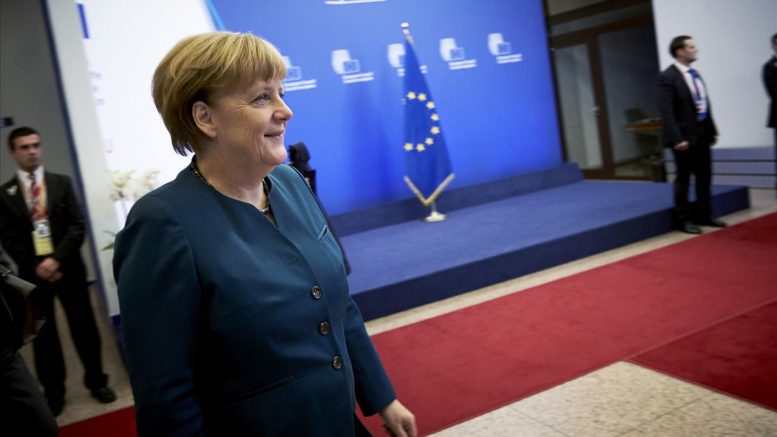What a journey she has been on!
When it was first touted that Angela Merkel would become the Christian Democratic Union (CDU) candidate for the German Chancellorship after her election as party leader in early 2000, I was reporting on European politics from Berlin for Australian newspapers.
Who is this person? I was asked by editors who had never heard of her.
The thing was, she wasn’t all that well known in Germany either and, despite the fact that she had become the first woman to lead the CDU, the idea that she would become the first woman to lead Germany was widely seen as fantasy.
Certainly, her colleagues inside the CDU thought so and she was passed over as the party’s candidate for the Chancellorship in 2002 in favour of a male conservative traditionalist.
While Merkel had proven herself to be an adept political insider, she was seen by her colleagues as too earnest and too lacking in communications skills to ever become Chancellor.
A decade after proving her critics wrong and winning the Chancellorship in 2005, Merkel has proven to be one of the rock-solid leaders of the new millennium.
Once labelled “mutti” (mother or mummy in German) as a putdown, “Mutti Merkel” has become the world’s most significant female leader.
And by her decision to seek a fourth term as German chancellor, Merkel has set herself the challenge of using her standing to become the leader of the fight to save Europe from “Trumpism”.
As someone who was there observing her – and the way the German people saw her – from the beginning, it is no surprise to me that she decided to fight on and seek another term in office, despite the pressures that this decision will place on her – and despite the risk that it will end in ignominious defeat.
The way that Merkel dealt with the rejection by her own party of her candidature for the Chancellorship at the 2002 election revealed a character of steel, strong ambition and instinctive pragmatism.
Interestingly, she never made anything of the fact that there was an underlying misogyny in the way she was pushed aside. She never has since.
The most striking thing about Merkel’s decision to seek a fourth term is that, after more than an exhausting decade of dealing with the internal crises of Europe, Merkel has committed to taking on the even greater responsibilities of effectively leading the fight for the survival of the post-war western democratic order.
Merkel has insisted that she does not want to be seen as the leader of the fight against the populist insurgency which has led to Brexit and the Trump presidency, but that is how her decision is being seen.
Barack Obama effectively made his last major foreign initiative a trip to Berlin to convince Merkel to stay and fight, to put his legacy in her hands.
He said publicly, in Merkel’s presence, that if Europe and America became “a voice divided” the prospect was for a “meaner, harsher more troubled world”.
Standing next to Merkel, he made it clear he was only leaving because the American constitution allowed him just two terms in office. He made it plain that he wished he could still be around for the fight.
The clear implication in what he said was that if Merkel did have the chance to choose, she should choose to stay. Two days later she announced she would take the chance.
There is considerable risk in this choice.
Hillary Clinton’s defeat, despite her superior qualifications for the presidency, showed that gravitas and experience aren’t necessarily qualities that voters respect any more.
In the US, the intense desire for change made Clinton the wrong candidate for the times and allowed Trump to become the change president despite his manifest shortcomings.
Merkel will go into the German election next year with some heavy baggage, especially if the mood for change grows.
And, even if her German voters choose to stick with her because of her great experience and strength of character, other Europeans who see her as having failed on immigration policy and having been responsible for hardline, fiscally conservative policies which have inflicted deep, unnecessary economic pain across the EU, might feel more determined to reject a European Union future.
But then for Merkel, the choice not to take up Obama’s challenge and to have instead announced her retirement was not really an option.
Too many – like Obama – are putting their hopes for the future in Merkel’s hands. It will be a heavy burden that is certain to exhaust her.
But it means that there are chapters in the remarkable story of Angela Merkel yet to be written.
By Geoff Kitney





